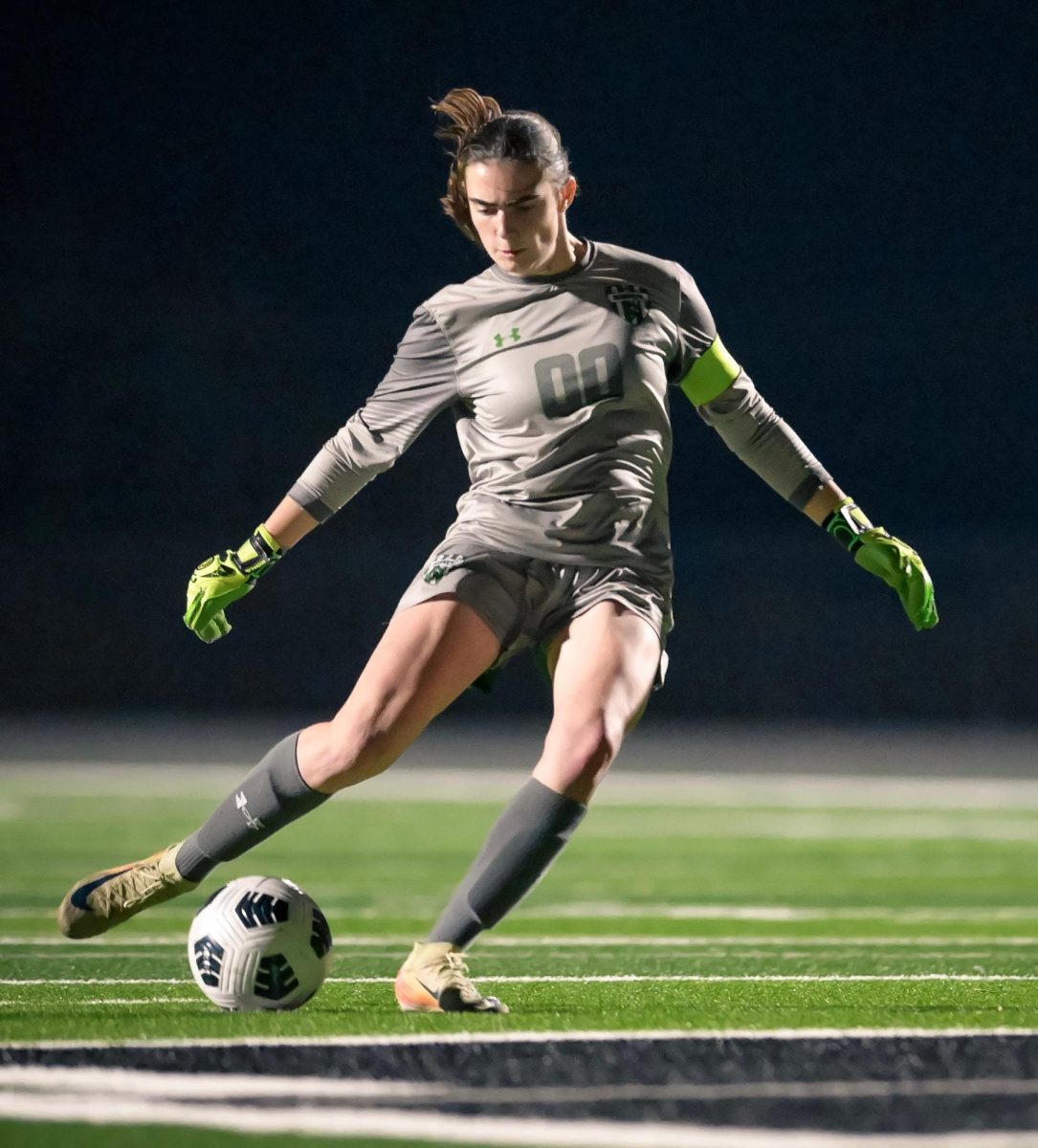
Senior Emma Nelson is a goalkeeper for Azle soccer. Photo courtesy of Chapa Photography.
Every day morning practice, game days, and even playing a sport outside of school can add a lot of weight to student-athletes’ shoulders. Athlete burnout can heavily affect not only the athlete’s ability to perform at a high level, but also their mental health and how they deal with all aspects of their lives.
For example, sophomore King Stephens dedicates a large amount of time to improving football.
“King is always up early for practices and determined to get better from every step along the way,” sophomore Creek Vines said. “If he messes up once, he’ll push himself 10 times harder.”
Athletes cope with burnout differently, ranging from things such as continuing to practice to get the stress out of their minds or having a person they talk to whenever these practices or games get difficult and stressful.
“Whenever I get stressed out or things get difficult for me, I turn to praying and talking with God, and usually after that I’m less stressed,” Stephens said, “Talking with God is my way of looking at things peacefully after a hard day.”
King said he comes ready to work every day, and is a leader to people on the team by bringing a good attitude to the table.
“I feel like people on the team look up to me because I’m very positive, and that’s a big thing in sports,” Stephens said. “Everyone wants to be around someone who will always have a positive effect and not a negative attitude.”
Senior goalie Emma Nelson said she reflects on what motivates her whenever she is feeling down or burned out from soccer.
“I cope with the burnout by reminding myself how much I’ve accomplished with the sport and the genuine love I have for soccer, as well as the many friendships and memories that my sport has given me,” she said.
Coaches can experience difficulty due to the stress of the game, the hard work involved in putting plays together, balancing the responsibilities of being a teacher, and the number of students they teach and coach in each period.
“It’s definitely a challenge to balance teaching, coaching and the late nights driving home is always the more tiring part,” volleyball and soccer coach Kimberly Little said. “Usually, I don’t eat the best, and then I’m thinking about the grades, or the thrill and thoughts about the game.”